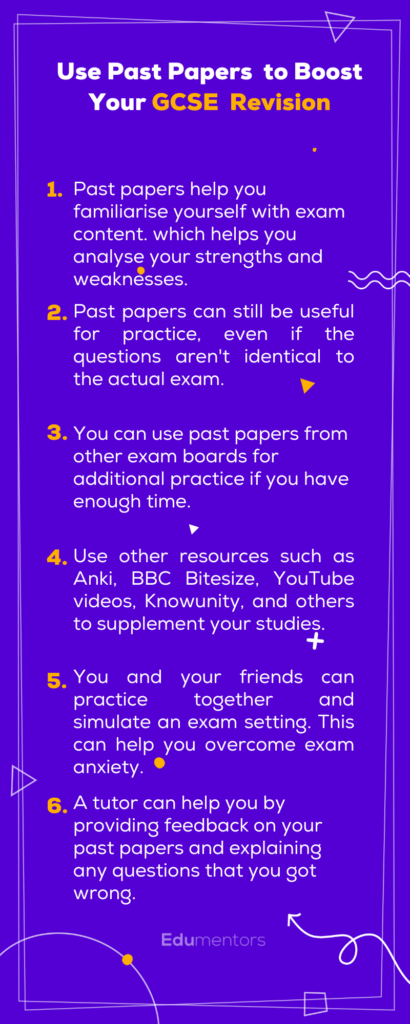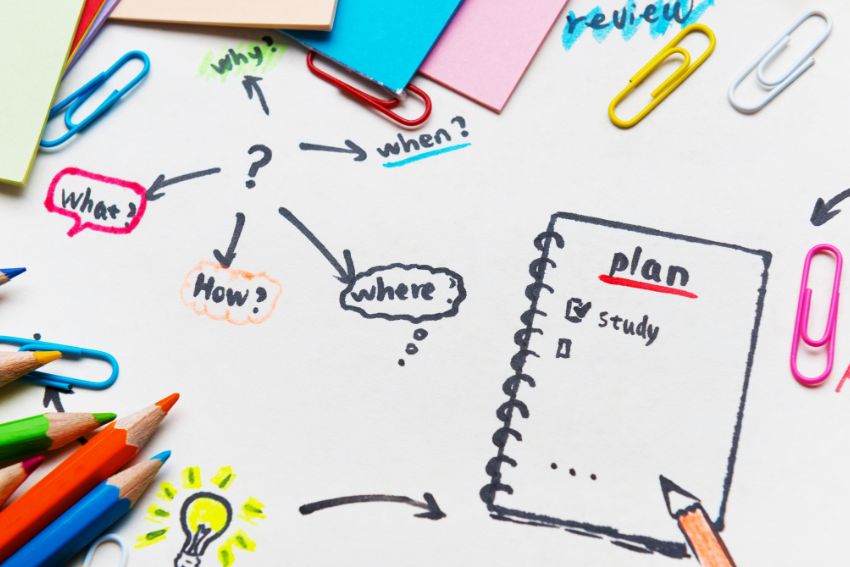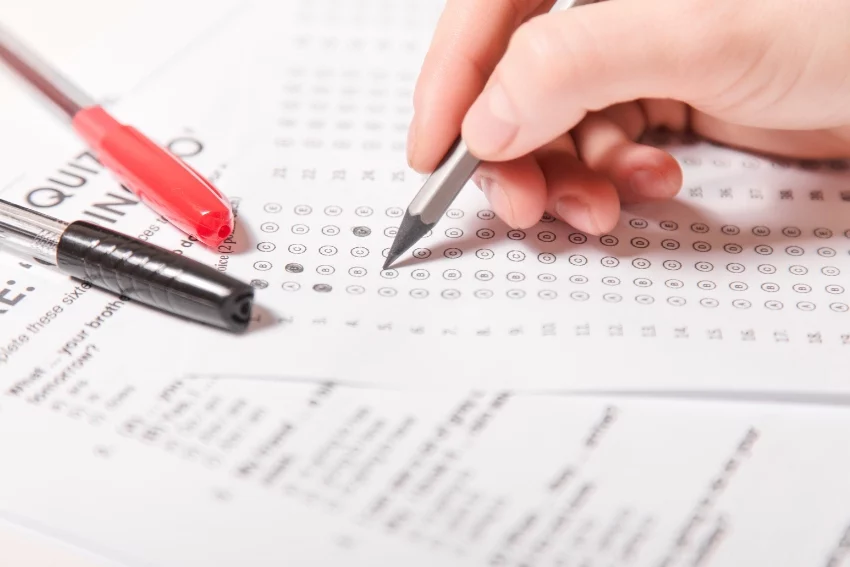Preparing for your GCSE Media Studies exam can feel overwhelming at first, but with the right resources, it becomes much easier. One of the best ways to prepare is by practising with real media studies past papers. They show you exactly how questions are structured, what examiners expect and how to manage your time effectively.
In this guide, you’ll find everything you need in one place, from OCR Media Studies GCSE materials to AQA and Eduqas past papers. Whether you’re focusing on television, music, news, or film, these resources give you a clear idea of what’s coming up in the exam.
You’ll also find links to film studies GCSE past papers, OCR media past papers, and Eduqas film studies past papers, all neatly organised by exam board and year. Using these will help you revise key concepts, sharpen your analysis and understand how to apply theory in real-world examples.
If you’re aiming for top marks, start early, review a few media past papers each week and learn from the mark schemes. With steady practise, you’ll see your answers become more structured and examiner-ready.
AQA Media Studies GCSE Past Papers
Paper 1 – Written
| Question Paper | Mark Scheme |
| Sample Set | Sample Set |
| June 2019 | June 2019 |
| November 2020 | November 2020 |
| November 2021 | November 2021 |
Paper 2 – Written
| Question Paper | Mark Scheme |
| Sample Set | Sample Set |
| June 2019 | June 2019 |
| November 2020 | November 2020 |
| November 2021 | November 2021 |
OCR Media Studies GCSE Past Papers
Paper 1 – Television and Promoting Media
| Insert | Question Paper | Mark Scheme |
| June 2019 | June 2019 | June 2019 |
| – | November 2020 | November 2020 |
| – | November 2021 | November 2021 |
Paper 2 – Music and News
| Insert | Question Paper | Mark Scheme |
| June 2019 | June 2019 | June 2019 |
| – | November 2020 | November 2020 |
| November 2021 | November 2021 | November 2021 |
Eduqas Media Studies GCSE Past Papers
Component 1 – Exploring Media
| Question Paper | Mark Scheme |
| June 2019 | June 2019 |
| November 2020 | November 2020 |
| November 2021 | – |
| June 2022 | June 2022 |
Component 2 – Understanding Media
| Question Paper | Mark Scheme |
| June 2019 | June 2019 |
| November 2020 | November 2020 |
| November 2021 | – |
| June 2022 | June 2022 |
FAQs About GCSE Media Studies

What is the GCSE Media Studies course about?
GCSE Media Studies explores how media works and why it matters. You’ll analyse TV, film, music videos, games, news and adverts to see how images, sound and language shape meaning and opinion. You’ll also study industries and audiences, then plan and create your own products (e.g. a magazine spread or short video). The course builds critical thinking, creativity and digital skills. If you enjoy stories, design, or debating how people and events are represented, it’s a great fit—and a strong base for future study and creative careers.
What topics are covered in GCSE Media Studies?
GCSE Media Studies covers key areas that help you understand how media is made and why it matters.
- Media industries: A behind-the-scenes look at TV, film, radio, newspapers, magazines, advertising, online and social media, video games and music videos. See how each sector works and shapes the content we consume.
- Genre: Learn the features and conventions of different types of media. Work out why thrillers feel tense, why comedy beats land and what makes a genre appeal to its audience.
- Narrative: Study how stories are built. Explore structure, character and techniques that keep audiences engaged.
- Representation: Examine how media portrays gender, age, ethnicity, nationality and regional identity. Understand how these portrayals influence our views.
- Issues and events: Analyse how news and other media frame big moments and social debates and how that can shape public opinion.
- Audiences: Identify who consumes media, how they respond, and why audience research matters to producers.
- Production skills: Get hands-on with planning, research and creating your own products (e.g. a magazine page, short video, or website). Apply theory in practise.
What is the format of the Media Studies GCSE exam?
The GCSE Media Studies exam usually includes two written papers and a coursework component.
- Paper 1 focuses on analysing media products such as TV, advertising, and film marketing. Students answer questions on media language, representation, industries, and audiences.
- Paper 2 explores media forms like music, newspapers, and online content. It often includes a comparison or case study question.
- Coursework (Non-Exam Assessment – 30%) involves creating an original media product, such as a magazine cover, short film sequence, or website, based on a set brief from the exam board.
Exam boards like AQA, OCR and Eduqas follow similar structures but vary in detail. Reviewing media studies past papers, such as OCR Media Studies GCSE and Eduqas Film Studies past papers, helps students understand question styles and assessment criteria.
What skills are developed in GCSE Media Studies?
GCSE Media Studies builds a broad set of real-world skills:
- Critical thinking – evaluate media messages, spot bias and ask better questions.
- Communication – present ideas clearly in writing and discussion.
- Analysis – break down imagery, sound, language and narrative to explain meaning.
- Research – find reliable sources and use evidence to support points.
- Creativity – plan and produce original media (e.g. magazine pages, video, web).
- Planning & time management – organise projects from brief to deadline.
- Technical skills – use cameras, editing tools and digital platforms with confidence.
- Teamwork – collaborate on productions and share roles responsibly.
In short, GCSE Media Studies doesn’t just explain how media works; it equips students with versatile skills they can use in further study, work, and everyday life.
What career opportunities are there after studying Media Studies at GCSE level?
Studying Media Studies at GCSE level can open up an exciting universe of career opportunities across a wide range of industries. Not only does it provide a solid foundation for further studies in Media, Communications, and Cultural Studies, but it also equips you with transferable skills valued in various fields. Here are a few career paths you might consider:
- Film & TV: production, directing, scriptwriting, editing, cinematography, casting, locations, sound.
- Journalism: broadcast or print/online reporting, features, columns, foreign correspondence.
- Advertising & Marketing: copywriting, campaign planning, media buying, brand management.
- Public Relations: media relations, reputation management, event coordination.
- Digital Media: social media manager, content creator, SEO specialist, digital marketer, games roles.
- Music Industry: talent management, production, live events.
- Publishing: editorial, design, marketing across print and digital.
- Photography & Graphic Design: creative work for brands, media outlets, and agencies.
The media world evolves fast, so new roles appear all the time. This subject gives you a strong foundation and the flexibility to grow with the industry.
Is GCSE Media Studies Hard?
It depends on the student. Media Studies blends theory and practise (sociology, history, cultural studies plus production), so you’ll think critically, research, analyse and create original work. The practical element can be challenging, but it’s also creative and rewarding. Many students don’t find it “hard” if they enjoy the topics; the 30% coursework helps balance the exams. With steady effort and curiosity, most students do well and often have fun along the way.
How can GCSE Media Studies complement other subjects?
GCSE Media Studies is an interdisciplinary subject that naturally complements a range of other subjects. Here’s how:
- English Language and Literature: The skills used in analysing media texts are similar to those used in English studies. This includes the analysis of language, structure, and presentation, as well as the ability to interpret and compare texts.
- History and Sociology: The study of media often involves understanding historical contexts and social implications. It provides insights into societal changes, cultural norms, and historical events, enhancing understanding in subjects like History and Sociology.
- Art and Design: The practical components of Media Studies often involve visual design, creative thinking, and technical skills that are also developed in Art and Design.
- Business Studies: Aspects of marketing, advertising, and understanding target audiences in Media Studies can supplement Business Studies, offering practical industry knowledge.
- Psychology: Media Studies often delves into audience behaviours, responses, and influences, which aligns with psychological concepts studied in Psychology.
- ICT and Computer Science: The technical skills developed in creating digital media products can enhance understanding and proficiency in ICT and Computer Science.
- Politics: Media plays a crucial role in politics and public opinion. Understanding this interplay can support studies in Government and Politics.
- Drama and Film Studies: Media Studies’ analysis of TV shows, films, and other performance media can deepen understanding of narrative techniques, character development, and representation, benefiting students in Drama and Film Studies.
In essence, GCSE Media Studies offers a wide-ranging skill set that not only stands firm on its own but also intersects with and supports learning in many other subject areas. It’s a versatile subject that can broaden students’ perspectives and enhance their analytical and creative capabilities.








